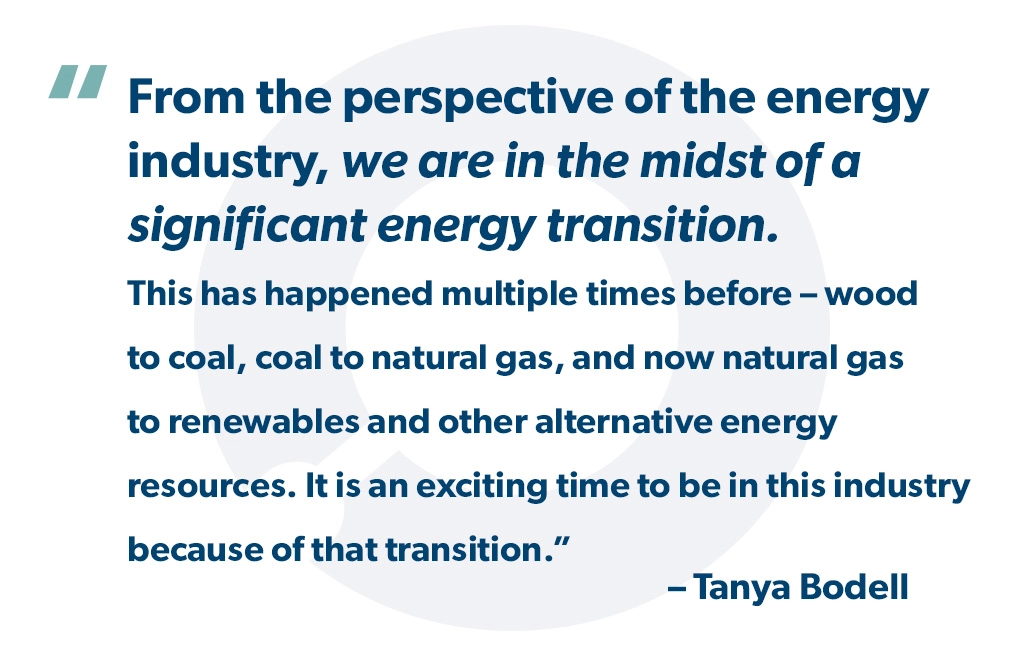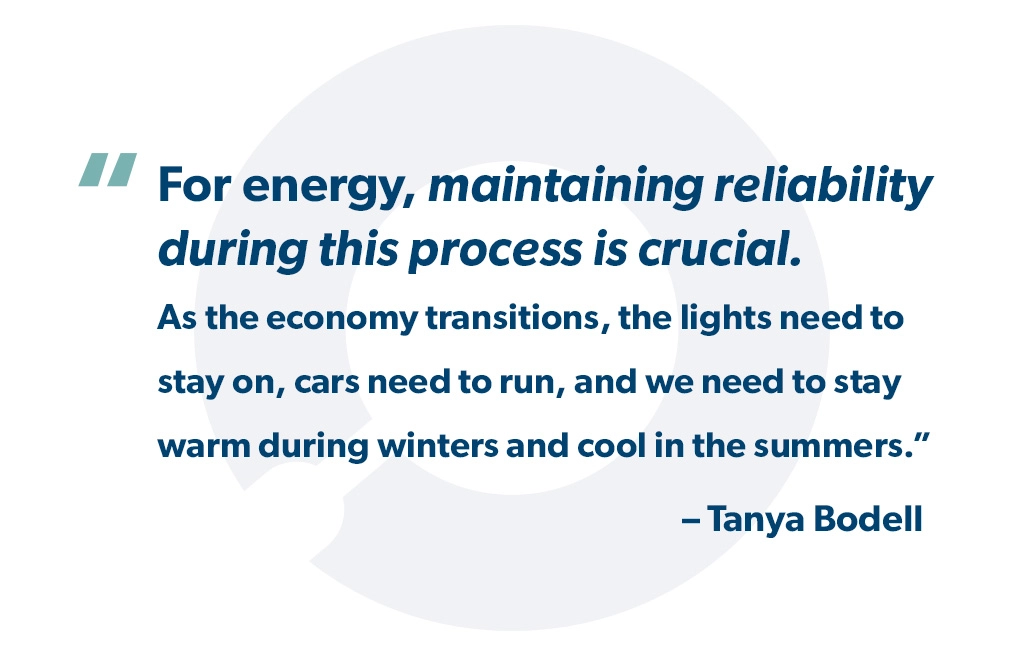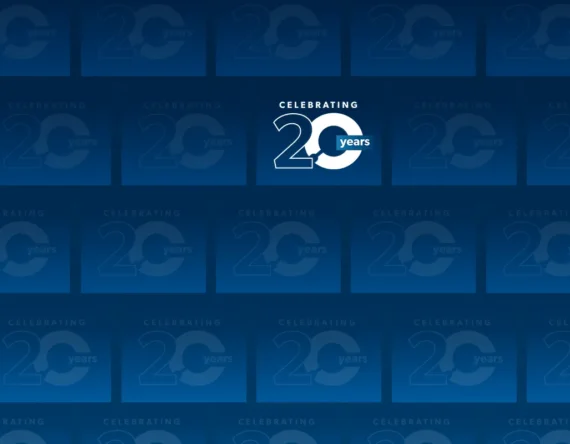To celebrate StoneTurn’s 20th Anniversary, we’re spotlighting our people. Meet Tanya Bodell, a Partner in Boston.
In this Q&A, Tanya discusses why StoneTurn’s culture is a key differentiator in the market, the role of the consulting industry in the energy transition, and how energy and consulting are poised to evolve over the next decade.
Culture –
What drew you to StoneTurn?
I love the culture of StoneTurn. Prior to joining as a Partner, I had worked with StoneTurn for eight years on selected projects as an energy industry expert in the Senior Adviser role. I enjoyed every project I worked on and everyone with whom I worked. I continue to appreciate the collaboration, positivity, friendship, and support that StoneTurners innately offer. StoneTurn is a place where great people and a great platform promote success. The number of StoneTurners from our early days and our repeat customers are all drawn to the same things that drew me to the firm.
What does collaboration mean to you?
At StoneTurn, collaboration means being able to work together, unlock value, and deliver excellent results for our clients while enjoying the process.
Business –
What has been the biggest change in energy and our work over the last 20 years?
The biggest change in our energy work has been StoneTurn’s focus on the energy industry as a stand-alone practice and the intersection with environmental issues. Although StoneTurn worked on projects that had an energy component, it did not have a team of experts specifically focused on energy until a couple years ago. That expertise has been a game changer for StoneTurn in terms of what we can offer clients. I’m so excited to be a part of our team of experts and to be responsible for helping to grow the energy practice.
From the perspective of the energy industry, we are in the midst of a significant energy transition. This has happened multiple times before – wood to coal, coal to natural gas, and now natural gas to renewables and other alternative energy resources. It is an exciting time to be in this industry because of that transition – a transition that is as significant as converting from horse and buggy to automobiles and all of the changes that such a shift entails with respect to economic, social and political perspectives. We are bringing innovative solutions to our clients whether they be traditional energy suppliers, dynamic energy users, or new technology firms. We are connecting corporations going net zero with the knowledge and technologies required to do so. In the midst of the tumult, we are helping clients to move forward and move ahead.
To be a consultant at this time, at this firm, we get to be part of the solution and serve as a critical part of the energy transition and corporate decarbonization. Today, our energy work is about helping clients unlock opportunity and create value that is needed to progress the industry and the world.
What are some of the risks or opportunities in the energy sector that are overlooked or forgotten about?
As with any transition, it’s important to manage timing and outcomes to ensure that the transition process happens smoothly. For energy, maintaining reliability during this process is crucial. As the economy transitions, the lights need to stay on, cars need to run, and we need to stay warm during winters and cool in the summers. Decarbonizing the energy industry requires change, but we still need to fuel the economy.
When it comes to opportunities overlooked, we need to combine innovative technological changes that are happening elsewhere, such as AI, blockchain, and the digital economy, with a very traditional industry that desperately needs innovation to transform. As with these technologies, energy is increasingly global. There has to be collaboration with the rest of the world in order to succeed at decarbonization and addressing climate risks.
Looking into your crystal ball, tell us what you think the biggest drivers of change will be in 10 years for either energy or consulting?
The more things change, the more they will stay the same. The role of consultant will continue to be the trusted advisor to clients, to provide creativity, expertise and support, and independence to help navigate clients through difficult and uncertain times. I see the next 10 years as very uncertain in the energy industry as it transitions away from carbon-based fuel to alternatives. In the midst of volatility, fits and starts, we will need to help clients manage the ship in a way that helps keep the boat afloat and calm while also moving forward in the midst of conflicting currents.
But is that really any different than any industry transition? Many years ago, there were people in New England who made a living cutting ice and selling it to states in the south. They had to take a commodity, brand it, deliver and store it, while differentiating it from every other ice block. There was a whole economic ecosystem around ice. With electricity and refrigeration, those jobs went away, and an entire industry had to convert, demonstrating how industries, businesses, and people have to continually evolve with the ever-changing marketplace. The pace of change used to be slower – consultants used to have to reinvent themselves perhaps every five years, and then once every two years and now, it feels like all the time. Innovation to meet our clients’ constantly evolving needs is key.
We are always asking, “how can we create value, what do my clients need?” The pace is faster, and the level of innovation is increasing, a lot of the basic support is being done in a more automated way. At the end of the day, however, clients need a trusted adviser – someone who is there to respond to emails, pick up the phone, be responsive, pivot and pitch as needed to help them to keep moving forward. AI and other technological advances will make things easier and more difficult at the same time. As consultants, however, we need to keep responding to our clients’ needs effectively and efficiently.
Reach out to Tanya Bodell if you would like to discuss any of the topics above.








